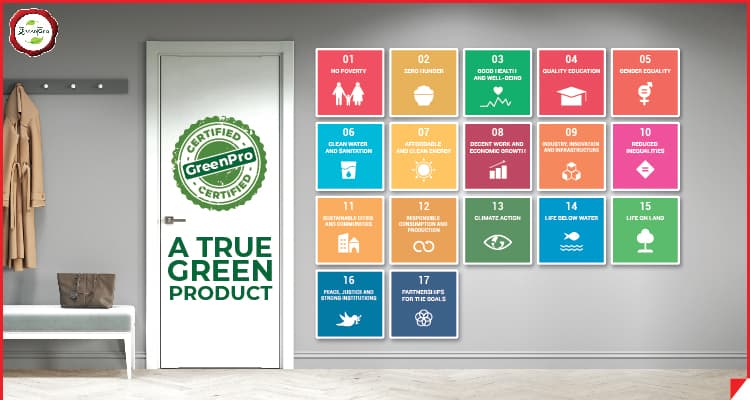“India’s G20 Presidency will work to promote this universal sense of one-ness. Hence our theme – One Earth, One Family, One Future” – Narendra Modi
India may have gotten the year-long G20 presidency on December 1, 2022, and became the 18 th country to take the United Nations’ ambitious Sustainable Development Goals (SDGs) baton in the right direction.
However, of the 17 SDGs identified and ratified by the participating countries, India has already been working on some of those and has recorded some remarkable progress. And accordingly, has released a comprehensive report of its progress on at least 13 SDGs (leaving out Goals 12, 13, 14, and 17).
17 SDGs:
| No Poverty | Zero Hunger | Good Health & Well-being |
| Quality Education | Gender Equality | Clean Water & Sanitation |
| Affordable & Clean Energy | Decent Work & Economic Growth | Industry, Innovation & Infrastructure |
| Reduced Inequality | Sustainable Cities & Communities | Responsible Consumption & Production |
| Climate Action | Life Below Water | Life on Land |
| Peace & Justice Strong Institutions | Partnerships to achieve the Goal |
When the world is struggling with how to initiate and assess the success of SDGs, India’s NITI Aayog has already released its SDG Index (Baseline Report 2018). It comprehensively documents India’s progress toward implementing the 2030 SDG targets.
On a set of 62 National Indicators, measuring their progress on the outcomes of the interventions and schemes of the Government of India.
Leading states/UT under each goal:
| Sr. No. | SDGs | Leading States/UTs |
| 1 | Eliminate Poverty | Tamil Nadu and Puducherry |
| 2 | Hunger | Goa and Delhi |
| 3 | Health | Kerala and Puducherry |
| 4 | Education | Kerala and Chandigarh |
| 5 | Equality | Kerala, Sikkim and Andaman and Nicobar Islands |
| 6 | Clean Water and Sanitation | Gujarat and Chandigarh, Dadra and Nagar Haveli and Lakshadweep |
| 7 | Affordable and Clean Energy | Tamil Nadu and Chandigarh |
| 8 | Decent Work and Economic Growth | Goa and Daman and Diu |
| 9 | Industry, Innovation and Infrastructure | Manipur and Delhi and Puducherry |
| 10 | Reduce Inequality | Meghalaya, Mizoram, Telangana, Dadra & Nagar Haveli, Daman & Diu and Lakshadweep |
| 11 | Sustainable Cities | Goa, Andaman and Nicobar Island |
| 12 | Land Ecosystem | Assam, Chhattisgarh, Goa, Manipur, Odisha, Uttarakhand, Dadra & Nagar Haveli and Lakshadweep |
| 13 | Peace, Justice and Strong Institutions | Himachal Pradesh and Puducherry |
Of them all, Gujarat figures as one of the leading states when it comes to SDG – Clean Water and Sanitation.
This further reinforces the remarkable work the public as well as private sectors are doing to ensure that society as a whole is putting a concerted effort to move towards a more sustainable future.
Moreover, some of the G20 priorities identified by India are:
- Green Development, Climate Finance & LiFE
- Accelerated, Inclusive & Resilient Growth
- Accelerating Progress on SDGs
- Technological Transformation & Digital Public Infrastructure
- Multilateral Institutions for the 21st Century
- Women-led Development
And if you pay close attention to India’s G20 priorities listed above then you will notice the priorities from 1 through to 5 are focused on the domain, which in one way or the other actively involves sustainable natural resource consumption and management. To make sure that further degradation to the environment or ecology does not happen.
And right there the Gujarat-based Wood Polymer Composites (WPCs) pioneer comes into the picture, by way of its eco-friendly WPC Hollow Door Frames and Doors solutions. These WPC solutions not only will prove people and nature-friendly but also help in turn time in terms of healing nature by replacing wood requirements with 100 per cent recyclable WPC frames and doors, etc.
The improved acceptability and variety of use of WPC-based solutions will ultimately arrest the falling of trees resulting in the restoration of nature and the environment to a large extent. And channeling the people and world to a more sustainable future which is what the United Nations wants to achieve by 2030 through these SDGs.
An Ahmedabad-based WPC frames and doors enterprise has been working on these sustainable aspects since its inception, some 4 years back. The WPC pioneer is always working on bringing in a solution which is more suitable for the restoration of the environment by incorporating practices and processes which are going green with every passing day.
And the CII-GreenPro certification of its products — which are already fireproof for up to 120 minutes and do not produce any harmful smoke in case of a fire – further re-emphasizes the Pathframe’s commitment to progressing together towards a green ecosystem.
The G20 aims to achieve these SDGs in the next 7 years (by 2030). Pathframe is also working on making these WPC frames and door solutions equipped with features most suitable for green development, that too at an affordable cost. And that is why, the WPC pioneer is putting a lot of time and resources into its dedicated Research and Development (R&D), which is augmented by state-of-the-art cutting-edge technology.
With a vision to develop and deliver more sustainable future products to the people world around, the introduction of Fire Resistance (up to 120 minutes) WPC Door Frames and Doors, bearing CII-GreenPro certification testimony of its visionary commitment.
So, what are you waiting for? Wish to lay your hand on a solution that is truly a green solution? Please visit the Pathframe website https://pathframe.com/ and have more information about products and features, etc. You can also write us back if you have queries or questions.
